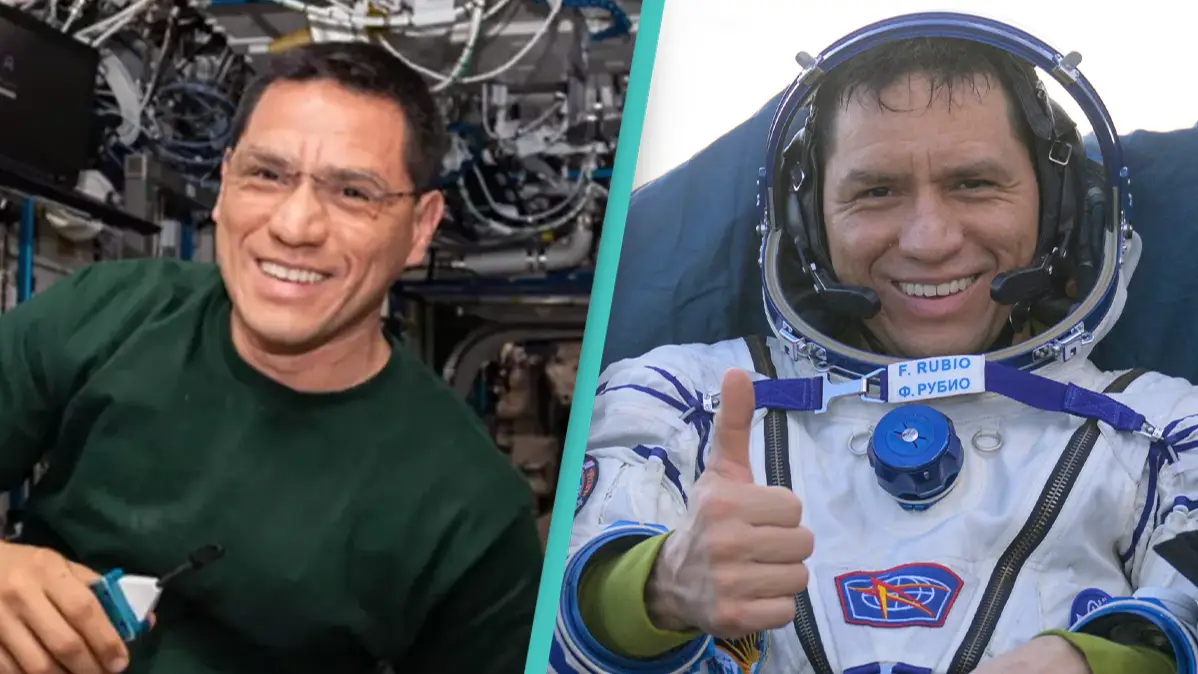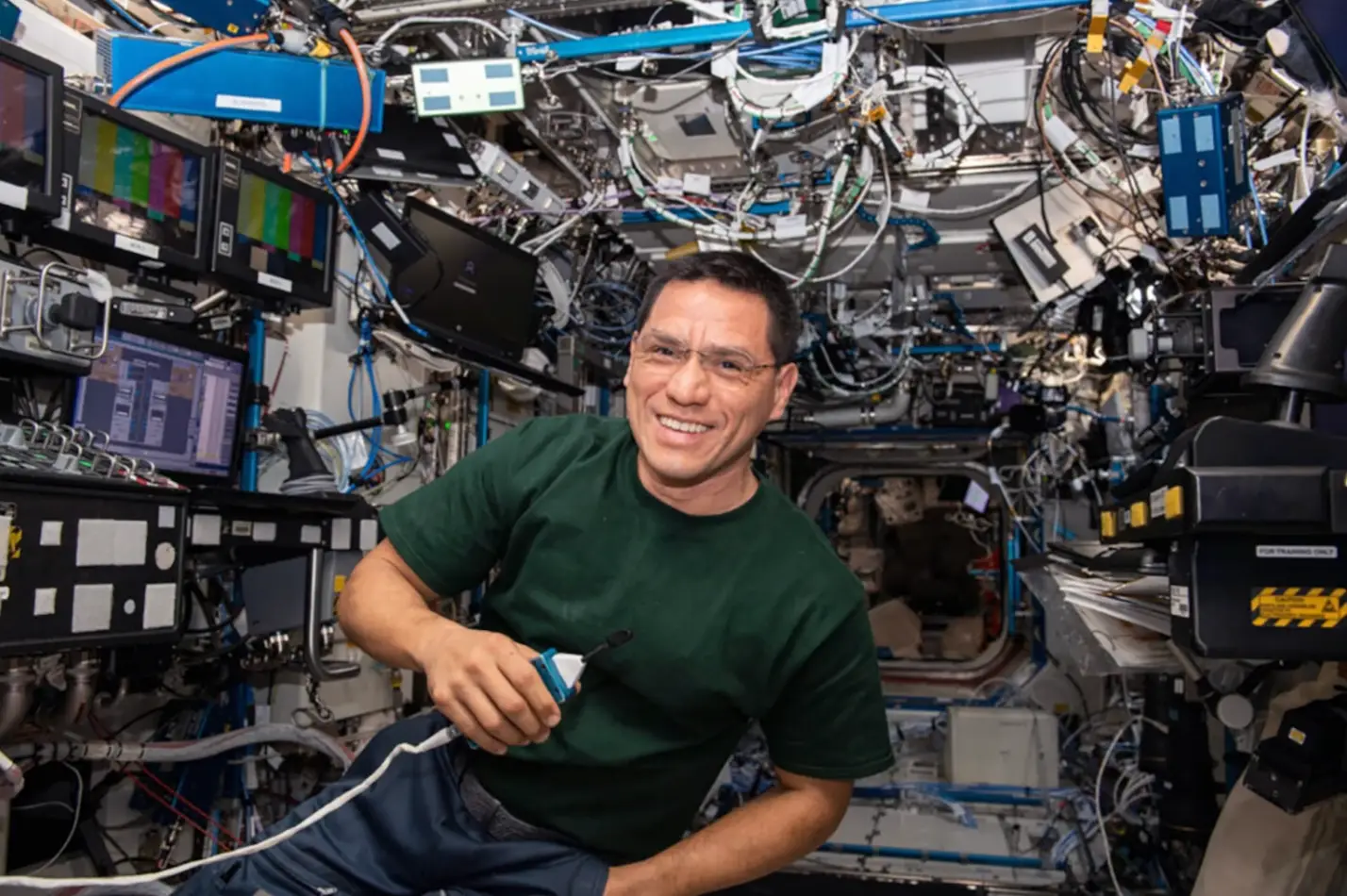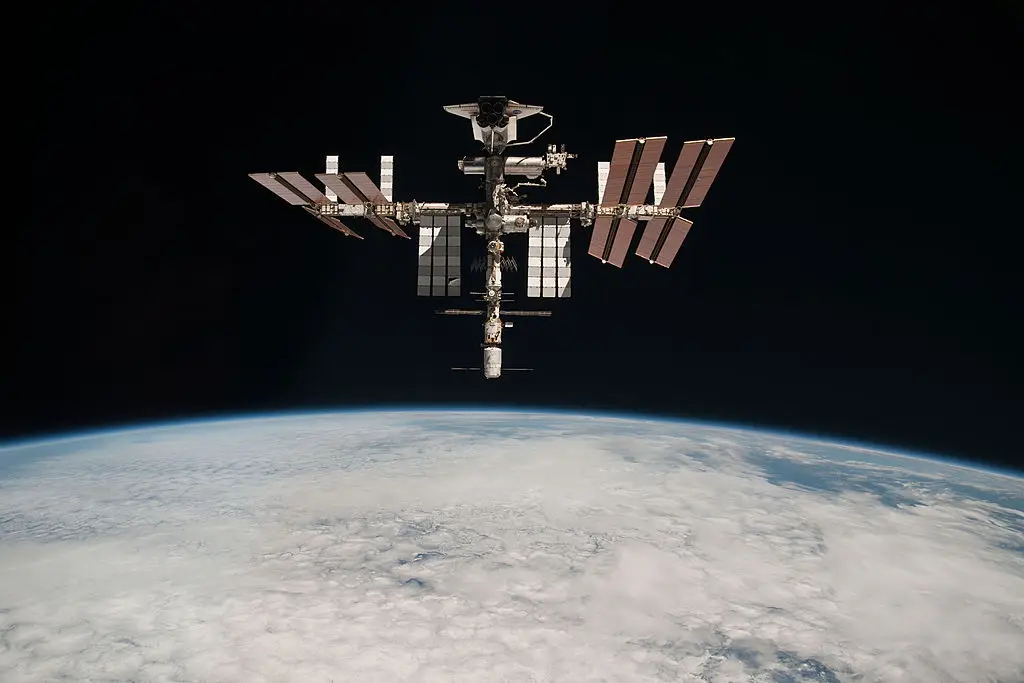
It turns out that the effects of space don't stop as soon as astronauts return to Earth - something which Frank Rubio found out last year.
When it comes to what happens to the human body in space - there's a few simulations out there to show what would happen if we somehow ended up in space with a spacesuit.
And let me tell you, it's not pretty.
Advert
However, that terrifying situation aside, the reality of life in space doesn't sound so luxurious and the effects of being up there for extended periods of time can be pretty brutal, which is what astronaut Catherine Coleman found out after spending six months floating about on the International Space Station (ISS).
But scientists have always been keen to find out what a sudden return to Earth from space has on the human body.
So when NASA astronaut Frank Rubio returned from 371 days up in space - the most ever by a US astronaut - he was subjected to a series of assessments on his mental and physical health, as well as his immune system, and for changes to his genes.

The 49-year-old was supposed to be up on the ISS for six months but that was later extended - meaning he spent over a year up there.
At around 7:00am on September 27, 2023, he arrived back on Earth, and after so much time on the ISS, everyday tasks like standing up and walking around would have been new to him.
The lack of gravity up in space means that muscle mass decreases as it is simply not being used, as well as bone loss.
That starts off early in the mission before tailing off after a bit.
One of the biggest issues is with balance, as Dr Jennifer Fogarty – chief scientific officer at Baylor College of Medicine's Translational Research Institute for Space Health – told ABC News: "How do you coordinate movement like walking, which you haven't done for a long period of time, and then the idea of balance?
"When you put those two together, it can kind of create a little bit of a precarious situation and something that's very well-monitored with the crew members when they land on Earth."
She also pointed out that longer missions will take astronauts longer to acclimatise back to Earth conditions.

Weightlessness does a lot to the body and can cause structural changes to the eyes and brain, known as Spaceflight Associated Neuro-Ocular Syndrome.
Being in an enclosed and isolated environment can also cause fatigue, stress, and loss of sleep.
Space is obviously a tough place to go, but Fogarty said that these changes and effects aren’t unaccounted for and are the sort of things that NASA prepares for before sending anyone out there.
She said: “We can select people, train them and make sure they're very healthy before they go.
"We do the research to understand where we can make different choices with the environments we build for these people to live and work in, so that we are not tapping into those reserves…and compromising them."
Rubio said that he spent four months recovering and 'reincorporating [himself] back into Earth', telling Time: "You adapt incredibly quickly to being in space, but then unfortunately, the readaptation process back to earth can sometimes be a little bit longer and more difficult."
Topics: NASA, International Space Station, Health, Space, Science
